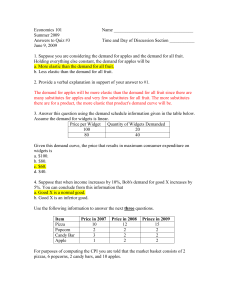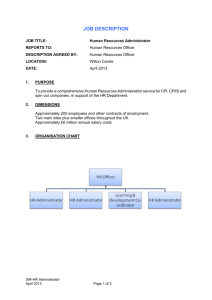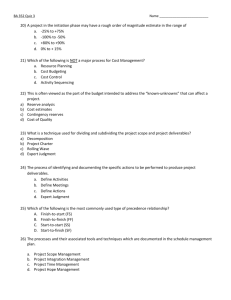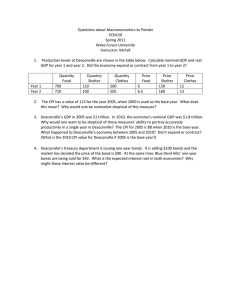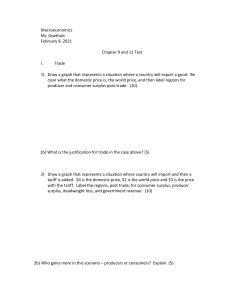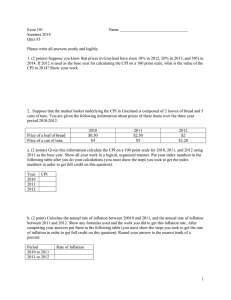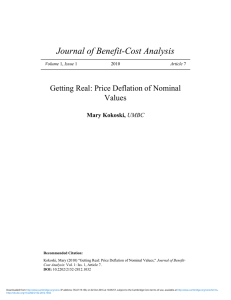Economics 101 Name ___________________________________ Summer 2009
advertisement
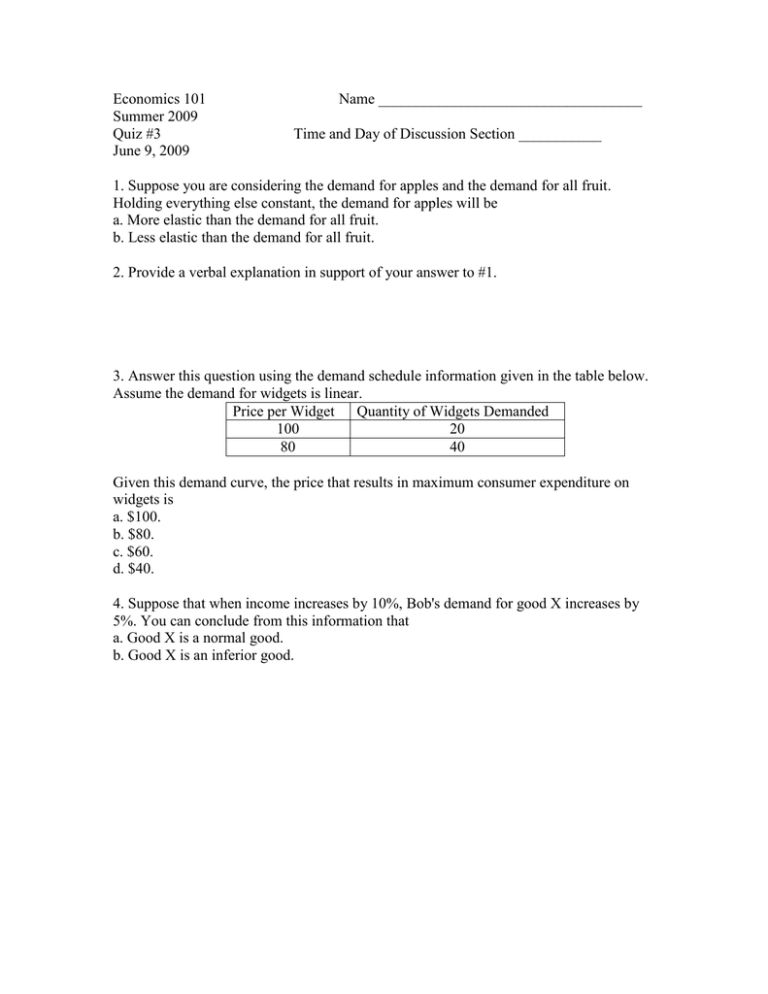
Economics 101 Summer 2009 Quiz #3 June 9, 2009 Name ___________________________________ Time and Day of Discussion Section ___________ 1. Suppose you are considering the demand for apples and the demand for all fruit. Holding everything else constant, the demand for apples will be a. More elastic than the demand for all fruit. b. Less elastic than the demand for all fruit. 2. Provide a verbal explanation in support of your answer to #1. 3. Answer this question using the demand schedule information given in the table below. Assume the demand for widgets is linear. Price per Widget Quantity of Widgets Demanded 100 20 80 40 Given this demand curve, the price that results in maximum consumer expenditure on widgets is a. $100. b. $80. c. $60. d. $40. 4. Suppose that when income increases by 10%, Bob's demand for good X increases by 5%. You can conclude from this information that a. Good X is a normal good. b. Good X is an inferior good. Use the following information to answer the next three questions. Item Pizza Popcorn Candy Bar Apple Price in 2007 10 2 3 1 Price in 2008 12 2 2 2 Prince in 2009 15 2 2 2 For purposes of computing the CPI you are told that the market basket consists of 2 pizzas, 6 popcorns, 2 candy bars, and 10 apples. 5. Calculate the CPI for 2007, 2008, and 2009 using 2008 as the base year. Fill in the following table. Use a 100 point scale for your CPI measure. Show your work in the space next to the table. Year 2007 2008 2009 CPI 6. Calculate the rate of inflation between 2008 and 2009 based upon the above information and using the CPI as your measure of the price level. Show your work. The rate of inflation between 2008 and 2009 = _______________________ 7. Suppose you live in the economy depicted in the above information and your nominal salary in 2008 is $20,000 a year. Your boss tells you she is going to increase your nominal salary to $23,000 in 2009. This nominal increase in salary will a. Increase your purchasing power. b. Decrease your purchasing power. Use the following table to answer the next three questions. Labor 0 1 2 3 4 Capital 10 10 10 10 10 Output Variable Cost 0 10 15 18 20 $8 Fixed Cost Total Cost $10 8. What is the price of labor given the above information? Make sure you identify completely the units of measurement in your answer. The price of labor = _______________________ 9. What is the price of capital given the above information? Make sure you identify completely the units of measurement in your answer. The price of capital = ___________________________________ 10. What is the average cost of producing 10 units of output? Make sure you identify completely the units of measurement in your answer and that you show your work. Average cost of 10 units of output = ______________________
